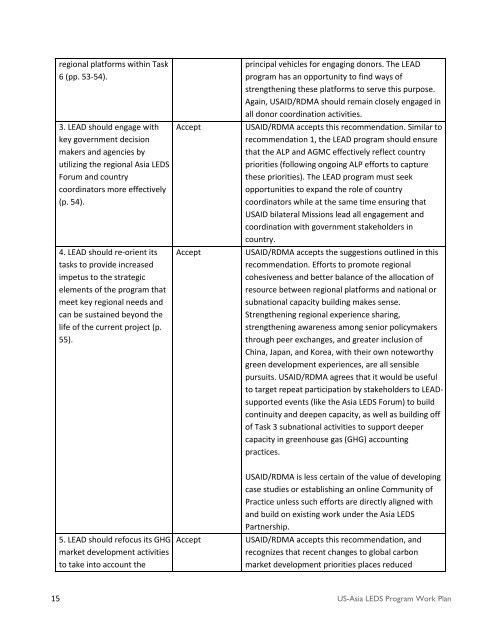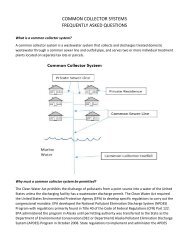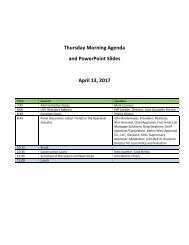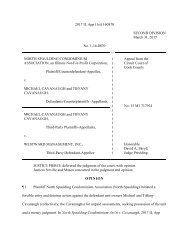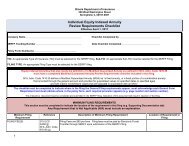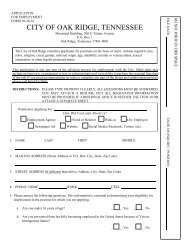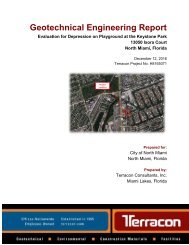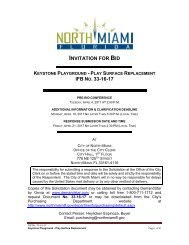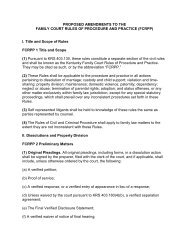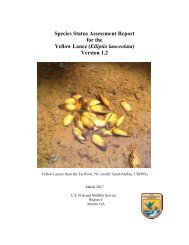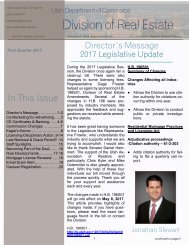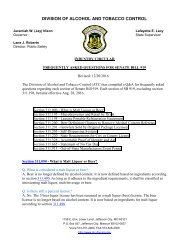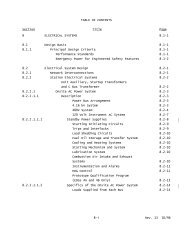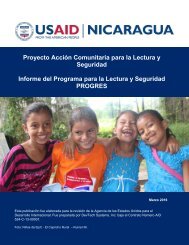ASIA LOW EMISSION DEVELOPMENT STRATEGIES (LEDS) WORK PLAN
PA00MMKZ
PA00MMKZ
Create successful ePaper yourself
Turn your PDF publications into a flip-book with our unique Google optimized e-Paper software.
egional platforms within Task<br />
6 (pp. 53-54).<br />
3. LEAD should engage with<br />
key government decision<br />
makers and agencies by<br />
utilizing the regional Asia <strong>LEDS</strong><br />
Forum and country<br />
coordinators more effectively<br />
(p. 54).<br />
4. LEAD should re-orient its<br />
tasks to provide increased<br />
impetus to the strategic<br />
elements of the program that<br />
meet key regional needs and<br />
can be sustained beyond the<br />
life of the current project (p.<br />
55).<br />
Accept<br />
Accept<br />
principal vehicles for engaging donors. The LEAD<br />
program has an opportunity to find ways of<br />
strengthening these platforms to serve this purpose.<br />
Again, USAID/RDMA should remain closely engaged in<br />
all donor coordination activities.<br />
USAID/RDMA accepts this recommendation. Similar to<br />
recommendation 1, the LEAD program should ensure<br />
that the ALP and AGMC effectively reflect country<br />
priorities (following ongoing ALP efforts to capture<br />
these priorities). The LEAD program must seek<br />
opportunities to expand the role of country<br />
coordinators while at the same time ensuring that<br />
USAID bilateral Missions lead all engagement and<br />
coordination with government stakeholders in<br />
country.<br />
USAID/RDMA accepts the suggestions outlined in this<br />
recommendation. Efforts to promote regional<br />
cohesiveness and better balance of the allocation of<br />
resource between regional platforms and national or<br />
subnational capacity building makes sense.<br />
Strengthening regional experience sharing,<br />
strengthening awareness among senior policymakers<br />
through peer exchanges, and greater inclusion of<br />
China, Japan, and Korea, with their own noteworthy<br />
green development experiences, are all sensible<br />
pursuits. USAID/RDMA agrees that it would be useful<br />
to target repeat participation by stakeholders to LEADsupported<br />
events (like the Asia <strong>LEDS</strong> Forum) to build<br />
continuity and deepen capacity, as well as building off<br />
of Task 3 subnational activities to support deeper<br />
capacity in greenhouse gas (GHG) accounting<br />
practices.<br />
5. LEAD should refocus its GHG<br />
market development activities<br />
to take into account the<br />
Accept<br />
USAID/RDMA is less certain of the value of developing<br />
case studies or establishing an online Community of<br />
Practice unless such efforts are directly aligned with<br />
and build on existing work under the Asia <strong>LEDS</strong><br />
Partnership.<br />
USAID/RDMA accepts this recommendation, and<br />
recognizes that recent changes to global carbon<br />
market development priorities places reduced<br />
15 US-Asia <strong>LEDS</strong> Program Work Plan


